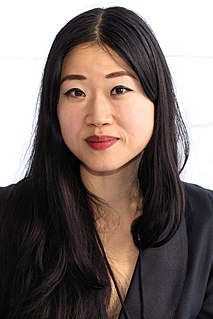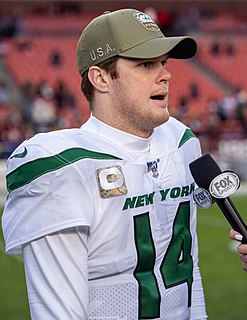A Quote by Mary H.K. Choi
The thing about living in New York as a writer is that you hit that age where it feels like everyone has a book all at the same time. It's like that one year where you're invited to twenty weddings.
Related Quotes
The thing about living in a place like Nebraska is there aren't that many people, so your circle of acquaintances is going be much more diverse. Everyone would go to the same bar, like the local politicians and construction workers. The class intersections were fascinating to me. And of course there's a whole other conversation about what a huge source of growth it was for me in terms of understanding people and the world in a way that I hadn't in New York. I used to say that L.A. is essentially New York with yards.
The thing about California is that it's kind of a dream, and I started to feel like I was living in a dream. I still feel like that. Because of that I think I've been able to realize a lot of things that were just ideas. When I was living in New York City, it's such a rat race, it's so competitive and everything is so concrete and in your face all the time. If you're like, "I'm gonna be a writer!" Everybody's like, "Yeah, you and all the other assholes on the subway." There isn't a lot of space for the detached, free-floating movement of the imagination.
Now that the most interesting matter of identity is not what place someone was born in, but what point in time they are from - where they sit in relation to time. Age has become much more divisive than place. With the Internet and globalization, a twenty-year-old in New York has far more cultural references in common with a twenty-year-old in Nebraska than they do with a thirty-year-old who lives next door. National identity is what they trick you with when they want your feet in their army boots or your taxes in their bailouts.
Look, there's no denying that comics have moved dramatically into the mainstream in North American culture in the last 10 years, and for someone like me who's always tried to make a living at it, it's been great, I'm very grateful for it. But at the same time, it's not a subculture-y thing anymore; it's something that's in the New York Times and the New Yorker.
I've never been to the Oscars, but if I was ever invited to the Oscars, I would have this weird paranoia of terrorism. It just feels like The Poseidon Adventure, everyone in their tuxes. Somehow, I feel like the whole time I would be looking for where the nearest exit was, and in a cold sweat about some kind of man-made disaster, like a terrorist strike or something. It seems like such a scary, claustrophobic proposition.


































